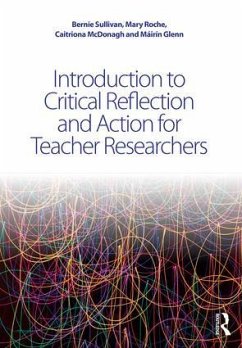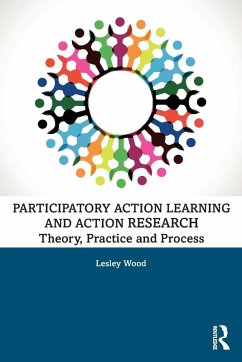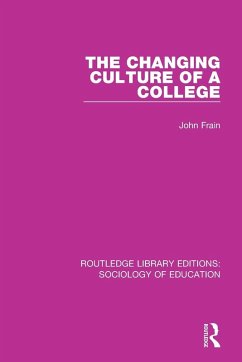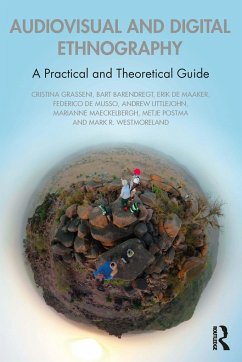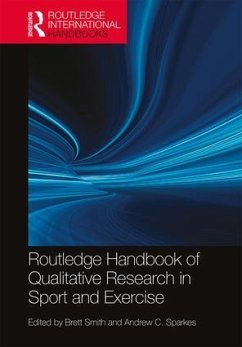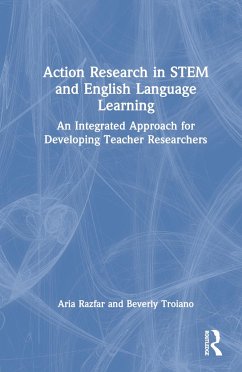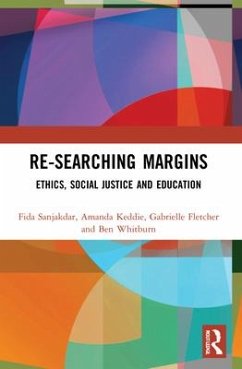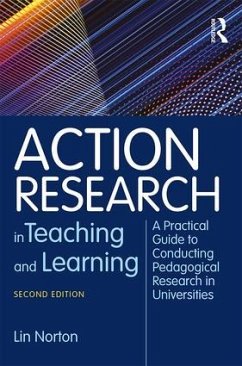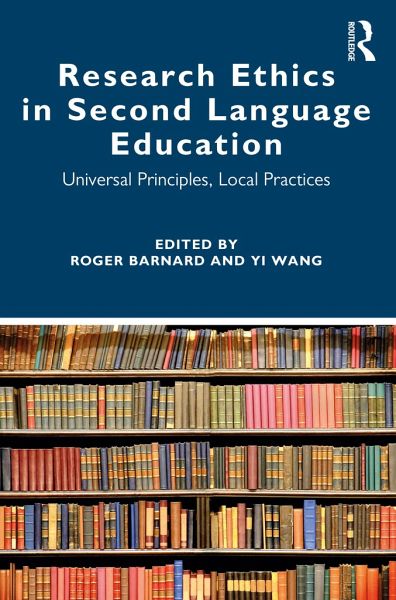
Broschiertes Buch
Research Ethics in Second Language Education
Universal Principles, Local Practices
Herausgeber: Barnard, Roger; Wang, Yi
Versandkostenfrei!
Versandfertig in 1-2 Wochen

PAYBACK Punkte
26 °P sammeln!




This book contributes in a fresh way to the field of research ethics by considering challenges faced in the process of collecting qualitative data, when examined through autobiographical narratives.
Roger Barnard has recently retired as an Associate Professor in applied linguistics at the University of Waikato. Before taking up his present post in New Zealand in 1995, he worked in England, Europe, and the Middle East as teacher, teacher educator, manager, and adviser to ministries of education. He has recently accepted visiting professorships in several Asian universities, where he has taught postgraduate courses and undertaken joint research projects, most of which have led to collaborative publications. His most recent books are Codeswitching in University English-Medium Classes: Asian Perspectives (2014, co-edited with McLellan), Language Learner Autonomy: Teachers' Beliefs and Practices in Asian Contexts (2016, co-edited with Li), Reflective Practice: Voices from the Field (2017, co-edited with Ryan), and English Medium Instruction Programmes: Perspectives from South East Asian Universities (2018, co-edited with Hasim). Yi Wang is a language teacher and researcher at Waikato Institute of Technology, New Zealand, and Associate Professor at Shandong University of Technology, China. She holds a BA and MA in English education and obtained her PhD in applied linguistics from the University of Waikato in 2016. Her doctoral study investigated language teacher cognition and practice regarding learner autonomy, with particular focus on the shift of control from teachers to learners. Her wide research interests include autonomous learner and teacher development, narrative inquiry, and migrant ESOL beginners' literacy development. She has published book chapters with Routledge and articles with the Journal of International Students, Teaching Education, and Chinese Journal of Applied Linguistics. She is currently collaborating on projects involving the impact of Covid-19 on language teacher beliefs and practices; religious values and EFL teacher identity construction; and the identity trajectories of PhD students in cross-linguistic and -cultural contexts.
Produktdetails
- Verlag: Taylor & Francis Ltd
- Seitenzahl: 190
- Erscheinungstermin: 30. Dezember 2020
- Englisch
- Abmessung: 234mm x 156mm x 10mm
- Gewicht: 302g
- ISBN-13: 9780367644833
- ISBN-10: 0367644835
- Artikelnr.: 60352796
Herstellerkennzeichnung
Libri GmbH
Europaallee 1
36244 Bad Hersfeld
gpsr@libri.de
Für dieses Produkt wurde noch keine Bewertung abgegeben. Wir würden uns sehr freuen, wenn du die erste Bewertung schreibst!
Eine Bewertung schreiben
Eine Bewertung schreiben
Andere Kunden interessierten sich für





